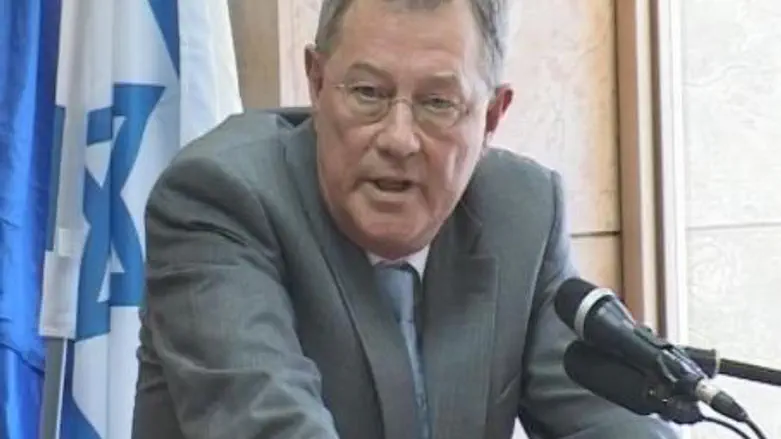
The United Nations Special Coordinator for the Middle East Peace Process, Robert Serry, expressed his concern Wednesday about the deteriorating state of the ceasefire between Israel and Gaza, following his visit there on Wednesday.
“I am worried we are seeing more and more signs that the understanding on a ceasefire reached in November 2012 is eroding in both of its main requirements – the end of all hostilities and the opening of the crossings for people and goods,” he said.
“During the past two months, we have seen more rockets being fired at Israel, border incidents, and Israeli retaliatory operations causing death or injury to civilians. The United Nations condemns the rise in violence, and all parties must act in accordance with international law.”
In December, Israel agreed to resume the transfer of construction materials for UN projects in Gaza, where the world body is working on a “critical” $500-million package to build schools, social housing, and water and sanitation facilities, but Gaza terrorists' clashes with Israel have since increased and the work has been stalled since November.
Serry stressed that imports of construction materials have dramatically decreased, lamenting the fact that the closure by Egypt of illegal tunnels beneath its border with Gaza has not been turned into an opportunity to increase the entry of such materials through legal crossings.
He welcomed the recent decision to allow in 1,000 tons of cement and other materials for flood relief, but stressed that imports of construction material for the private sector through legal crossings remain essential for Gaza’s economy while ensuring that it is not be diverted from its intended peaceful purposes. He also voiced the hope that the Rafah crossing with Egypt would soon resume normal operations.
Serry visited the Gaza City pediatric hospital, which has been affected by frequent power cuts due to the precarious energy situation in Gaza. “Energy is the basis for everything,” he said, “whether desalination, private sector growth, or health services. Short-term solutions, such as the generous donation of Qatar to the Gaza power plant, remain essential.”
“But we must also look to the medium term,” he added, voicing UN support for the Palestinian Authority’s request to establish a power line from Israel into Gaza for better and more cost-efficient access to energy.
“Ultimately, only the reunification of Gaza and the West Bank under the legitimate Palestinian Authority, based on the PLO (Palestine Liberation Organization) commitments, can pave the way to a durable solution for Gaza, as part of political progress towards peace.”
According to reports from Gaza, residents are dealing with stoppages of 12 to 18 hours on a near daily basis. While officials from the territory's Islamist rulers are quick to blame Israel, in reality Egypt is largely involved after having shut down the tunnels into the Sinai that were used to illegally smuggle fuel. Gaza's power plant was initially shut down on November 1 under the Egyptian siege.
Egypt has accused the Hamas terrorist organization which rules Gaza of promoting terror in Egypt through the Muslim Brotherhood, which it is an offshoot of. Hamas denies the charges, although Egypt is continuing toact against the terror group.